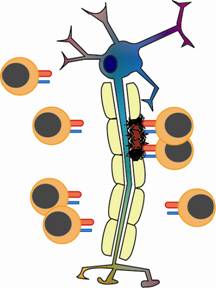


Understanding what people do at work is not easy. And understanding what people in a research lab do all day may be particularly difficult. When people ask about what we do, it is often in terms of ‘breakthroughs’, as though a day without a novel discovery is one that was wasted. Of course, it’s not like this, as in most work, science proceeds in small steps (and not always forward!).
So if it’s not possible to say what working in the lab is like by describing an individual project, what other ways are there to understand it? Our view is that anyone who joins the group should advance in three key areas: research, education and communication.
To do research, you have to learn to define a problem in the context of what other people think about it and what you think about it. Then to move forward you have to have the technical ability to design and execute experiments that have a high likelihood of testing the idea in an unambiguous way. Often it turns out that it’s easier to design and perform an experiment, than to understand what the result means. It’s one of the joys and frustrations of the work.
Education encompasses what we teach ourselves and what we teach others. It’s critical because science is continually moving forward. To understand and learn new concepts we read and discuss scientific papers and attend meetings. But there are also many much less formal interactions. In the laboratory we acquire the practical techniques needed to do experiments from colleagues. This grass roots learning and teaching goes on all the time.
The art of communication is different from education, because it’s usually directed at people that already have a good understanding of the work that you do. This makes it difficult for a lay audience to follow, but it’s a vital skill. Learning to present at meetings of all sizes is an important part of life in science. Good writing is essential too. When experiments are finished they have to be reported in papers, while to raise money, plans for future work need to be articulated in grant applications.
Working successfully in science combines all these skills. Everyone who spends time in the lab should expect to become better at all of them.
Lindsay Nicholson.